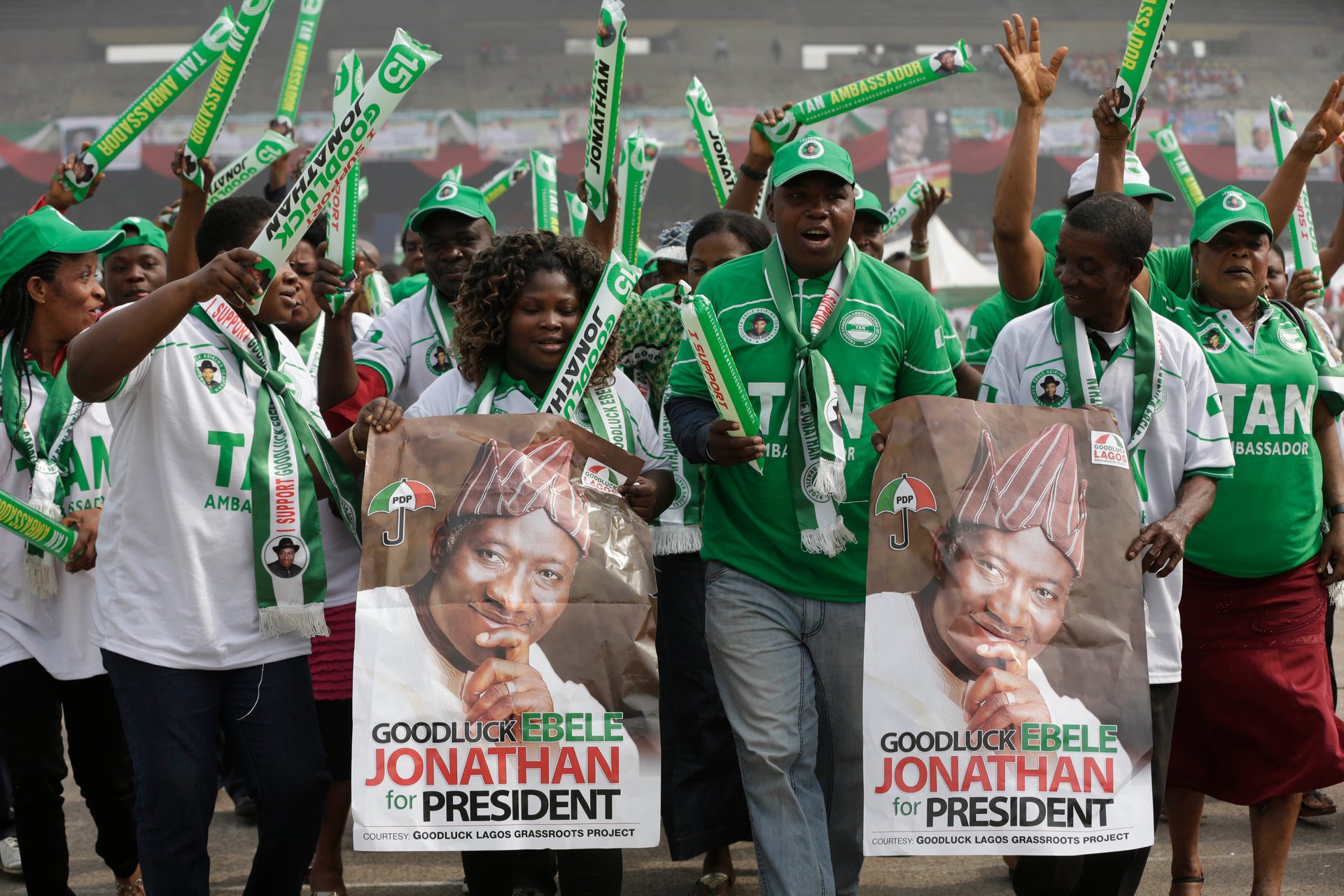Nigeria’s election is set for Feb. 14th, but voters will believe it when they see it
Nigeria’s presidential election is fast approaching—polling is scheduled for February 14th—and there’s much talk it will be delayed. Many Nigerians are still waiting for their voter cards and well over a million people appear likely to be displaced from their voting centers by the Boko Haram insurgency in the north east.


Nigeria’s presidential election is fast approaching—polling is scheduled for February 14th—and there’s much talk it will be delayed. Many Nigerians are still waiting for their voter cards and well over a million people appear likely to be displaced from their voting centers by the Boko Haram insurgency in the north east.
On Thursday, the National Council of States, what you might call a committee of elders that includes several former presidents, current governors, and President Goodluck Jonathan, said the election will go ahead as planned.
But here’s the thing. Even with the pronouncement by the NCS, that doesn’t mean the polls will open on Valentine’s day.
“You can never be confident. Despite INEC’s [the electoral commission] insistence it is ready, it clearly isn’t,” says Roddy Barclay, a long-time Africa analyst with Control Risks.
During the last election cycle in 2011, polling day was delayed more than once due to irregularities.
“It seems the [NCS] meeting puts an end to a scheduled delay, but if materials aren’t ready and there’s still major issues with the voter cards in the immediate run-up to the polls, an eleventh hour delay cannot be ruled out,” says Barclay.
Talk of a delay has fermented an increasingly charged political atmosphere. The fear, especially among members of the opposition All Progressives Congress (APC) party led by retired Major General Mohammadu Buhari, is that the ruling People’s Democratic Party (PDP) will orchestrate a delay to try to buy time with a frustrated electorate.
There’s a lot at stake. This election is the first to be contested by two parties with a national presence, making it the closest since Nigeria’s 4th Republic was established in 1999. In the past, elections have been lopsided, with voters picking between one large party and a few smaller ones.

A postponement was first suggested by the Sambo Dasuki, the national security adviser, on January 22nd citing concerns over the erratic distribution of voter cards. Only 68% of voters have picked up their cards nationwide, and the airwaves have been flooded for weeks with calls urging voters to collect them. Some who have tried have encountered long lines, closed offices or missing cards. Others, who no longer live where they registered in 2011, find themselves caught in a cumbersome process to change their polling station.
Many Nigerians just want the elections over and done with, so that normal life can carry on. Some Easterners who live in the North, for example, so fear post-election violence they have begun to evacuate the region. Businesses who deal with government agencies have lamented for weeks that everything is at a standstill. With a real possibility of a change in government, uncertainty over the direction of future policy has left many in limbo.
As Africa’s largest democracy and no.1 economy, Nigeria’s election is naturally drawing a lot of attention. On January 25th, John Kerry, US Secretary of State, met with both major candidates to advise that the elections proceed as scheduled, but whether that advice will be heeded is another matter.